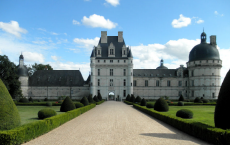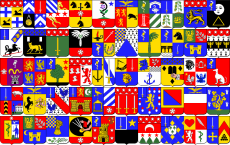A French society overwhelmed by the revolutionary years
After having graduated in October 1785 from the Military School in Paris , the young officer Napoleon Bonaparte began his career in a French society that had not undergone major change since king Henri IV, and where the established order seemed likely to continue for the coming centuries.
Certainly the English colonies in America had recently acquired their independence, proclaimed the republic and adopted a modern constitution; but this revolution had concerned only a few people (not more than two million citizens), and had happened so far away...
A few years later, the French Revolution shaked this established order and made to emerge self-made men, especially among commoners. Thus children from the poorest layers of the Third Estate or from very petty bourgeoisie became officers or senior officials.
Meanwhile, manufacturing, science, transportation, public works, boosted by an economy devoted to an unprecedented war effort, began to offer social elevation opportunities to a generation that had up to then very little more than the work of the land to horizon.
The Consulate and the Empire, bringing stability to this new order, consolidated these achievements of the Revolution, so that the Bourbon Restoration, only fifteen years later, could not return to the previous order.
In this upheaval and in this consolidation, French freemasonry played a leading role, while experiencing its first "golden age".




